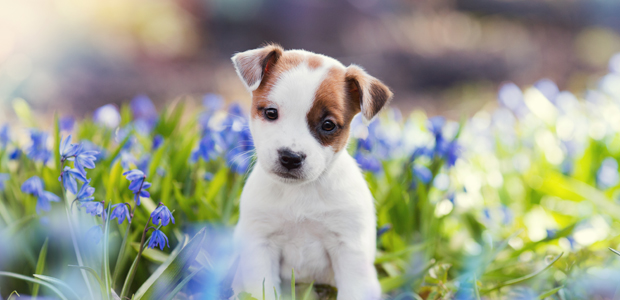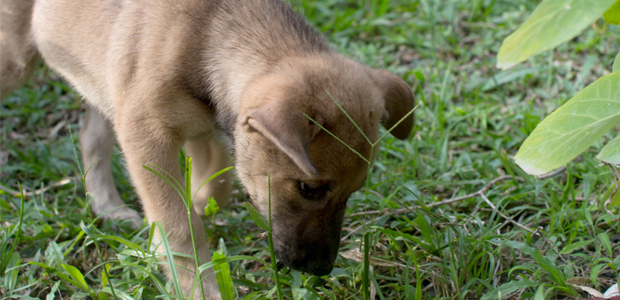Why do puppies eat their poop?
I think we can all agree that puppies are completely adorable. Whether they are zooming around the house, causing mischief, or just taking a nap, pretty much everything they do is cute. So, it can be a shock to new dog owners when their precious fur baby starts to eat their own poo.
Don’t panic, it’s very common behaviour in puppies. However, it can become a problem if left unchecked, so let’s take a look at why puppies eat their own poop and how to stop them from doing it.
Why is my puppy eating poop?
There are a number of reasons why your puppy might have started to eat poo:
They like the taste
Lots of dogs eat poo simply for the reason that they enjoy the taste. It’s called coprophagia and it’s a common behaviour in dogs.
There are plenty of varieties of poo that your puppy will come across, and your dog might have a preference for any of the following; cow, horse, sheep, fox, badger, cat, other dog’s or their own poo.
They learnt it from their mother
Puppies might pick up the behaviour from their mother. It might sound strange, but when they are still very young, the mother will eat their baby’s poop.
This instinctive behaviour started thousands of years ago to stop predators smelling the puppy’s poo, as well as keeping their den clean. It’s not uncommon for some pups to mimic this behaviour and adopt a habit of eating poo.

Read more: Why do dogs eat poo?
Boredom, stress or anxiety
If your dog doesn’t get enough mental and physical stimulation, it’s possible they could eat poo to attract attention. Although it might seem drastic, this attention-seeking behaviour will normally provoke a big response from owners.
They aren’t eating the right food
Some foods are harder for dogs to digest than others. This can mean that when certain foods (such as highly processed dog food) come out in their faeces, it tastes and smells similar to when it was eaten.
It might be worth speaking to your vet about gradually switching to a higher-quality diet, such as Purina's Pro Plan Expert Care Nutrition Plan.
How to stop your puppy from eating poop
Although eating poo is a natural behaviour for puppies, it’s a good idea to nip it in the bud while they are still young and receptive to training.
Aside from being a bit gross for owners, eating poo could make your puppy poorly. Dogs can spread lots of diseases through their faeces, including the deadly and highly contagious parvovirus.
Parvovirus is easily passed on from an infected dog to other dogs that aren't up to date on their vaccinations. If they have a habit of eating livestock poo, this could contain worming medication that can be harmful to dogs.

Read more: Why does my dog lick my face?
Supervise them during toilet training
Keep an eye on your dog, or keep them on a lead, when it’s time for them to do their business. This will give you more control over them whilst they are still learning and will put you in the best position to distract them if they start to show an interest in their poop.
Reward them for good behaviour
When your pup responds positively and chooses to go for a tasty treat instead of a poo, be sure to lavish them with praise for making such a good decision. Use their favourite, high value treats and make a real fuss to let them know that they are doing really well.
Read more: Why does my dog stare at me?
Keep an eye out
Try to eliminate the possibility of your pup eating poo by being proactive. Pick up their poops promptly, if they have an interest in other animal’s poos, take extra care when walking in areas where there are livestock and give poos a wide berth.
If your pup enjoys eating cat poo, you can stop your dog from eating cat poop by moving their litter box to make sure that it is out of reach of pesky pooch paws.
Looking for more puppy advice?
For expert advice on training your puppy or dog, get in touch with your local vet. Find your nearest vet using our Find a Vet page.


